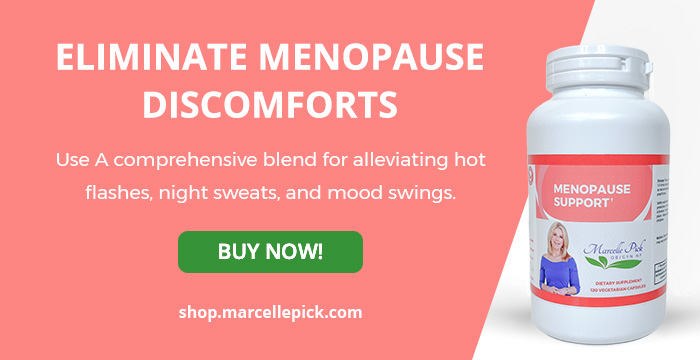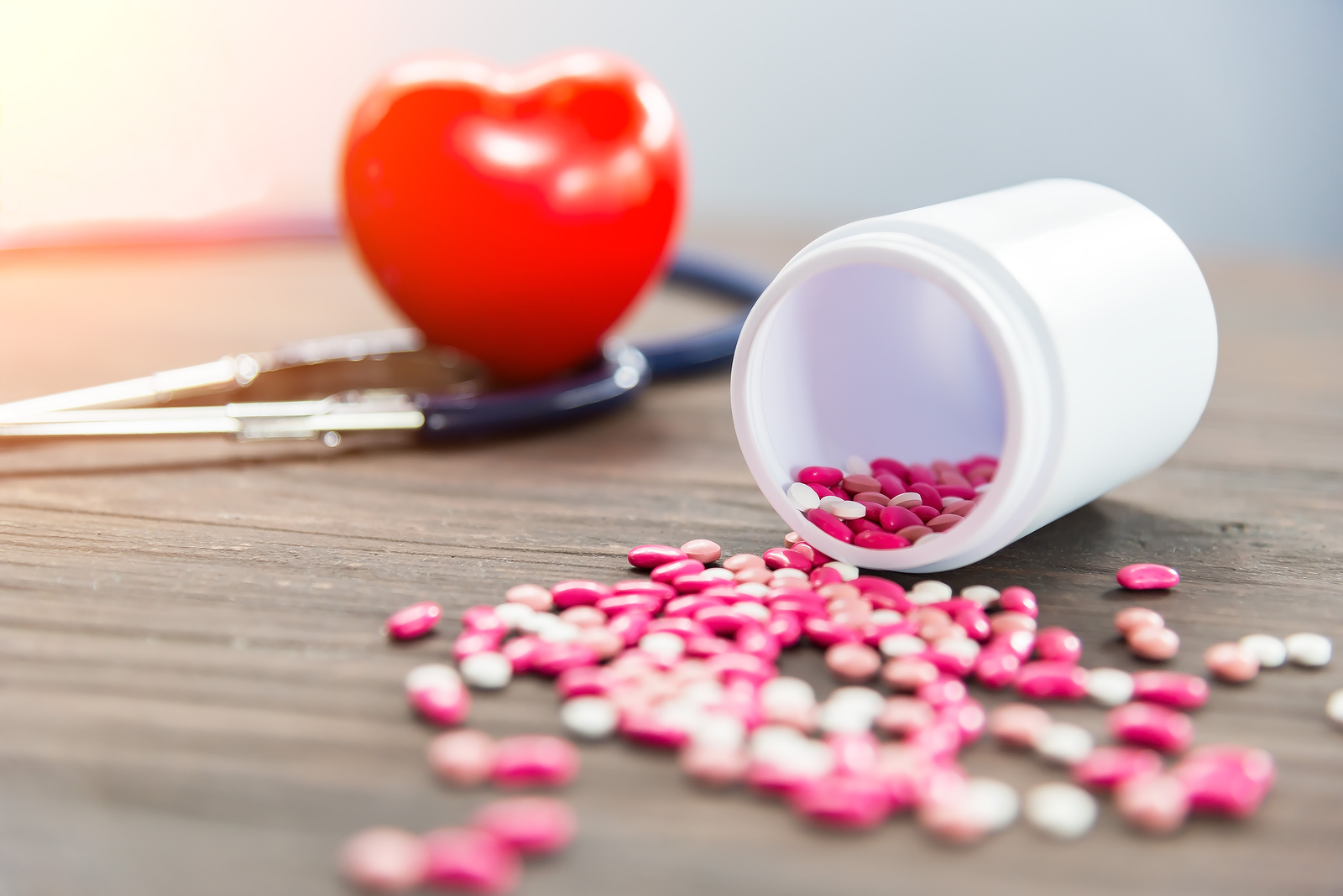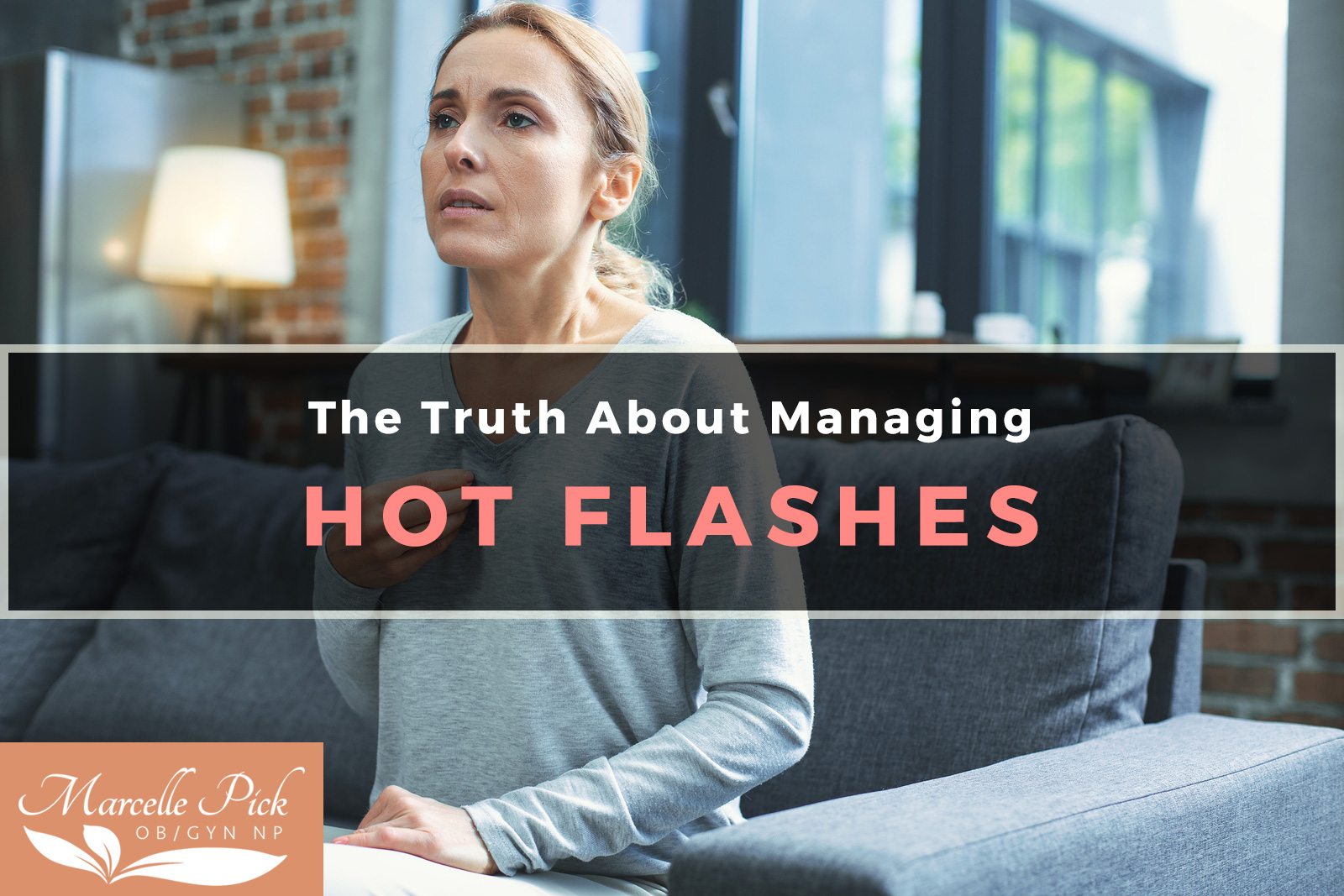Menopause is a time of change and it can be so confusing! There is so much information out there (and so many stories) about what will happen to your body — and your life! Will you gain weight, lose your sex drive, suffer from hot flashes?
Will menopause feel as though it’s hitting you like a freight train? It may feel that way for some women, while for others, it sneaks up over time and catches them by surprise. Over the last 30 years, I’ve seen firsthand that it’s a different experience for every woman – but surprisingly, there are myths about menopause that many women still believe to be universally true.
I see it over and over again with our patients and our members. They come to us frustrated or upset about what they have been told will happen to them, even if they are not yet experiencing any symptoms!
So what’s your menopause IQ? Do you understand what is going on with your body and how best to navigate this transition? Without the right information, addressing your hormonal changes and finding the most effective solutions for your own unique symptoms and experiences will be more difficult than it needs to be.
Menopause is a transition that may not be simple, but that doesn’t have to mean that it must be hard. Whether you are trying to make sense of your symptoms and their impact on your body or you are just beginning to learn more about what may lie ahead for you, debunking the menopause myths will help you to make decisions that are right for YOU.
Menopause Myths Answered
Discover how much you know with our eye-opening menopause questions below and learn more about what to expect in menopause!
Q. Does Menopause Typically Begin at Age 50?
A. The average age for women beginning menopause is age 52 but the truth is, premature menopause can start for you as early as your late 30’s and menopause can come as late as your 60’s, though this is less common. For most women, their menopause timeline lies more within the late forties to mid-50’s range.
Most people think that menopause is a long process, but menopause actually occurs once you have officially gone 12 months without any menstrual bleeding. After that, you are considered to be post-menopausal, though for many that does not mean your symptoms are over!
The period leading up to menopause is called perimenopause and it can be just a few months or as long as 13 years! During this time, you may be experiencing a variety of symptoms including hot flashes, irritability, fatigue, or weight gain. These symptoms can come as a surprise to many women who are still having their period, and may be (or may think they are!) years away from menopause.
Symptoms are often more common — or more severe — during this time leading up to menopause as your sex hormones, which include estrogen, testosterone, and progesterone, can fluctuate more dramatically than they do after menopause.
You can learn more about this time in our article, “Am I in Menopause?“.
Q. Is it True That I Won’t Know I’m in Menopause Until My First Hot Flash Hits?
A. When that first hot flash hits, it is a good indication that you are in perimenopause. However, many women experience other symptoms first. It’s not uncommon to experience weight gain, cravings, irregular periods, fuzzy thinking, lower libido, hair loss, irritability, mood swings, depression and/or anxiety, or fatigue long before you ever feel that first hot flash. (And some women survive their perimenopausal journey without ever having a hot flash!)
The list of symptoms is long and if you begin by experiencing depression or weight gain, for example, you may not immediately connect the dots to menopause.
Your symptoms may or may not include hot flashes so it’s good to know what to look for so that you can find relief. Our article, “Relief Tips for the Top Five Menopause Symptoms” can get you started.
Q. Can I Avoid Weight Gain in Menopause?
A. Yes, you can … though I want to be honest that it won’t be easy! Many women gain weight during this transition as their hormones fluctuate. The truth is it is very common, but it does not have to be inevitable. One of most effective things you can do to avoid weight gain is to eat well, as good nutrition will give your body the fuel it needs to heal and balance hormones naturally. Increasing protein while eliminating processed sugar and reducing carbohydrates will help to support your body in maintaining your weight.
We often see women try to cut back on food in an attempt to lose weight, which may only make things worse. As you progress through perimenopause and menopause, your body is producing less estrogen, progesterone and testosterone. Because fat tissue can produce estrogen, your body may seek to restore balance and protect itself by storing more fat around your waist, hips and thighs.
The fat tissue produces more estrogen to help your body heal but that in turn will lead to more fat production. And if your adrenals are not healthy, they can play a role in weight gain as well. It’s just far more complicated than calories in and calories out: the quality of the calories matters!
How can you keep your weight healthy? Check out our article and learn more about how to “Blast Away Belly Fat“.
Q. Are the Main Symptoms of Menopause Physical?
A. Emotional symptoms caused by hormonal imbalance can wreak just as much havoc in women during perimenopause as the physical symptoms can. If you feel tired, depressed, irritable or struggle with memory concerns or what we like to call “fuzzy thinking,” you are experiencing some of the emotional symptoms of hormonal imbalance.
Progesterone drops can lead to irritability. Changes in estrogen and progesterone may cause mood swings. Memory, concentration, and mood are all impacted by our hormone levels. If you recall the hormonal shifts that came with being a teenager, you will understand why menopause is sometimes called adolescence in reverse.
While teenagers are trying out new things, figuring out who they are and getting ready to make their way in the adult world – menopause is an equal time for change in women. It’s a time for reflection and assessment, a time to determine who you really are, what matters to you and what you want to be in the second half of your life.
You can learn more about both the physical and the emotional symptoms of menopause in our article, “Perimenopause.”
I’m in Menopause and My Mother Had a Hysterectomy – Will Our Menopause Experiences Be Comparable?
No. When you have a total hysterectomy, the surgical menopause may bring on instant hormonal imbalance as your body must react to the loss of the uterus and the cervix as well as the ovaries and fallopian tubes all at once. Unlike in the more gradual transition that occurs naturally with menopause – where changes occur over months or years – with a hysterectomy, the blood flow and hormone production is altered immediately. This can lead to other symptoms as the body reacts and adapts to the change.
When ovaries are removed, for example, the risk of low testosterone almost doubles. One side effect of low testosterone can be a reduction in sexual desire and enjoyment.
When only the uterus is removed, as occurs with a partial hysterectomy, the effects can be hard to predict. Sometimes, the change is less extreme with fewer symptoms. Other women may even experience an improvement, while still others may experience very severe symptoms.
While there may be common symptoms, surgical menopause and natural menopause are usually experienced very differently. If you are trying to decide about or prepare for surgery, we know you have questions.
You can find answers in our article, “Hysterectomy: Pros, Cons, and Alternatives.”
Can I Maintain a Healthy and Vibrant Sex Life Through Menopause?
Yes, you can! Sex is an important and fun part of a healthy intimate relationship and it can stay that way as you age. If you’ve been told that a woman’s interest in sex decreases normally in your 40’s, 50’s or 60’s – you’ve heard another menopause myth.
If your desire is decreasing, it is usually a symptom of hormonal imbalance. This imbalance can lead to physical changes such as vaginal dryness that can make sex uncomfortable (and when that happens, your libido may fall as well). It can also lead to emotional symptoms such as moodiness or depression than can make sex much less appealing. But those symptoms can be addressed so that you can maintain a healthy vibrant sex life through menopause and beyond!
Hormonal changes can be difficult to talk about especially when they impact you sexually. And if your practitioner was one of the people who tried to tell you a decline in desire is “normal,” you may feel even more uncomfortable bringing up your sex life.
But we can help. We’re here to listen and you can begin to learn more in our article, “Women’s Sexuality and Fertility“.
Once I Pass Through Menopause, Will My Body Make Sex Hormones Any More?
While some reproductive hormones such as estrogen and progesterone do decline after menopause because they are less needed, your body never stops making them. They still play an important role in maintaining your good health; they will still be produced just in smaller amounts. You can thank your adrenals for that!
Some women experience no symptoms of hormonal imbalance after menopause, while others continue to experience symptoms such as hot flashes, urinary incontinence, vaginal dryness or weight gain. It is a menopause myth that once you reach menopause your hot flashes or other symptoms will completely vanish. But you can keep them under control by rebalancing your hormones after menopause.
While the risks of osteoporosis and heart disease do increase post-menopause, you can reduce those risks and increase your likelihood of a long, healthy life with some simple self-care.
You can learn more about your hormones by reading our article, “Perimenopause – Starting Your Transformation.”
Will Menopause Weaken My Bones?
Not necessarily! While menopause impacts your body in many ways, you can rebuild new bone naturally at any age. Your bones continually adapt and only about 20% of your bone health is driven by factors outside of your control.
Knowing your risk factors (some of which may surprise you) is important to your long-term bone health. For example, did you know that your weight plays a role? Women who weigh less than 120 pounds have increased bone health risk. Who knew?
So do women who drink more than one soda a day. That’s because the acid in food and drinks such as soda can weaken your bones. Drinking plain water with lemon or eating more vegetables has an alkalizing effect that can help keep your bones strong.
Did you know that when they sing “Don’t worry, be happy,” they may as well be talking about your bone health? Feeling worried or anxious can impact your bone health as well. We see that women who are “worriers” and who are thin can have greater problems with bone loss.
Since 80% of your bone health is in your control, you can make choices to strengthen and take control of your bone health. You can learn more in our article, “Osteoporosis – Countering The Myth.”
Does the Age When I Had My First Period Affect the Age at Which I Will Experience Menopause?
Not necessarily. While some women who menstruate early go through menopause earlier, it is not the case for all women. There are many factors that influence when menopause will arrive for you.
Some of the factors are within your control, such as whether you smoke or drink. Women who smoke may go through menopause earlier than women who don’t and women who drink may experience menopause later than women who do not. Being pregnant is also a factor, as more pregnancies may result in a later menopause.
But a big factor, which is out of your control, is the age at which your mother stopped having her periods and went through menopause. This may be one of the best ways to estimate your age at menopause but it’s still just an indicator, not an absolute.
Is Taking Hormones Better for You During Menopause?
Hormone replacement therapy (HRT) is not without risks and side effects, so we believe you should thoroughly consider your natural options first. Working with thousands of patients and members, we have found that listening to your body and living a healthy lifestyle – complete with physical activity and good nutrition – can go a long way toward managing your symptoms and restoring hormonal balance.
Nutritional supplementation and phytotherapy can help many women replace the missing nutrients from their diets and supplement their healthy eating to reduce hormonal imbalance symptoms. For many women, this is enough; others may benefit from bioidentical hormones, working under the guidance of a healthcare practitioner qualified to ensure you find the right dose and balance.
There are always options and choices and we encourage you to explore natural solutions before turning to HRT. Our suggestions for hormonal imbalance can help you determine the right next step for you.
What Was Your Menopause IQ?
Now that you know a little more about menopause, and that there are natural options to help you more effectively navigate through it, you are on your way to making better decisions for your hormonal health.
You can learn more about menopause, your symptoms and what you can do to feel better by reading additional articles in our library.
You can also learn more about how our products can help restore hormonal balance. We’re here to help and you can call us to learn about our risk free trial.
If you want to learn more about your symptoms, you can get started right now by taking our free, online Hormonal Imbalance Quiz.









